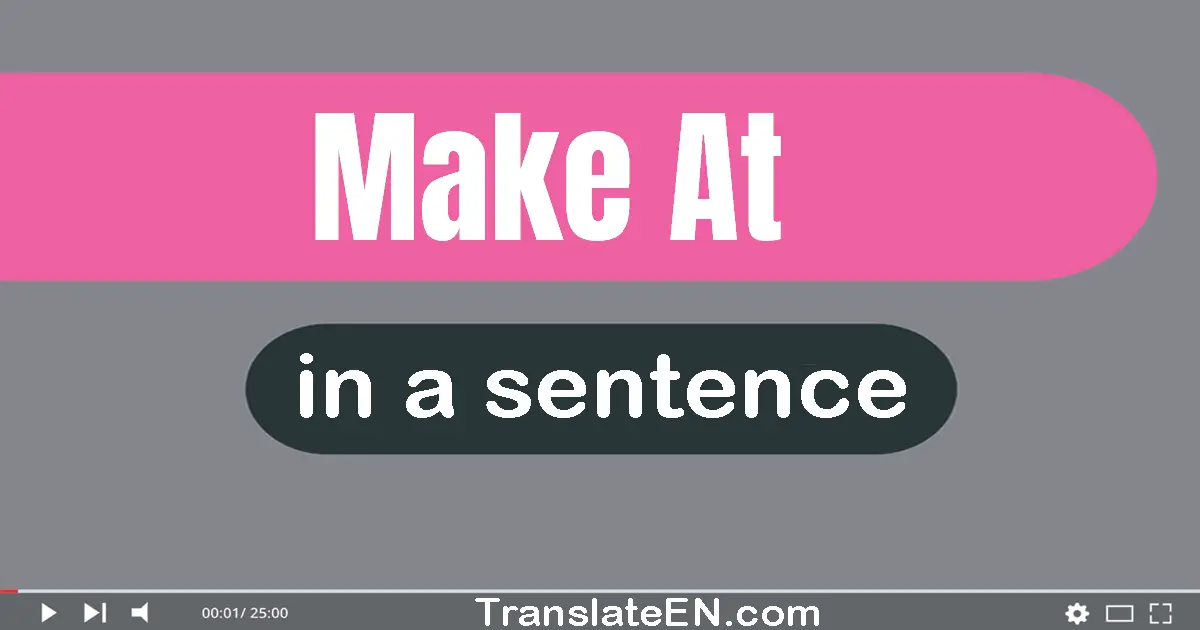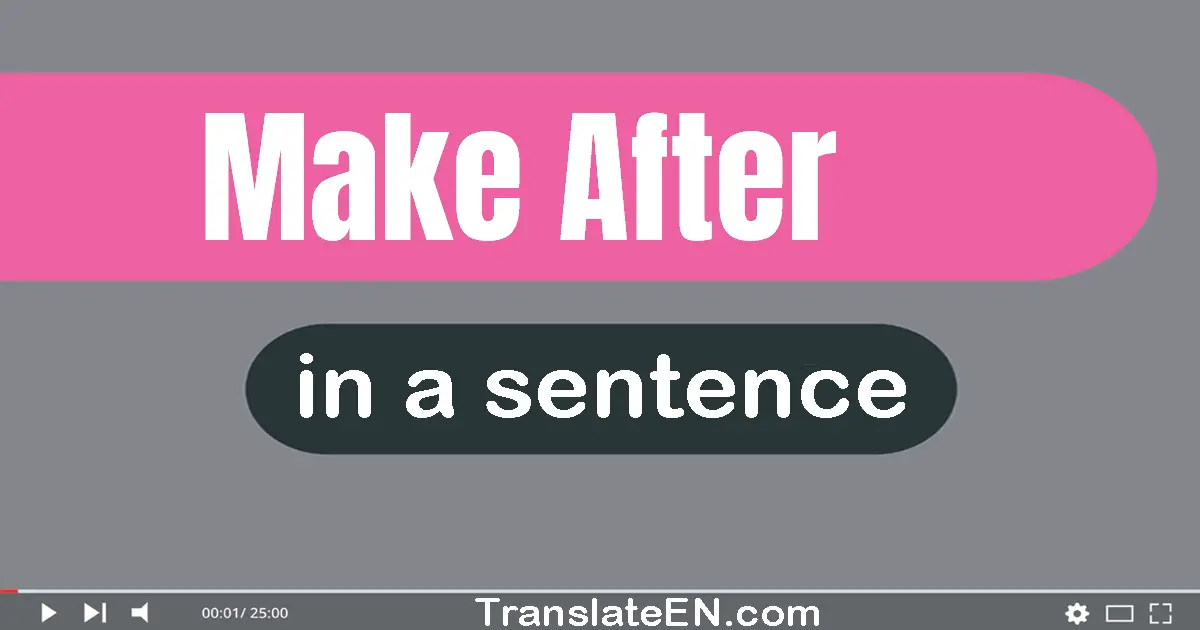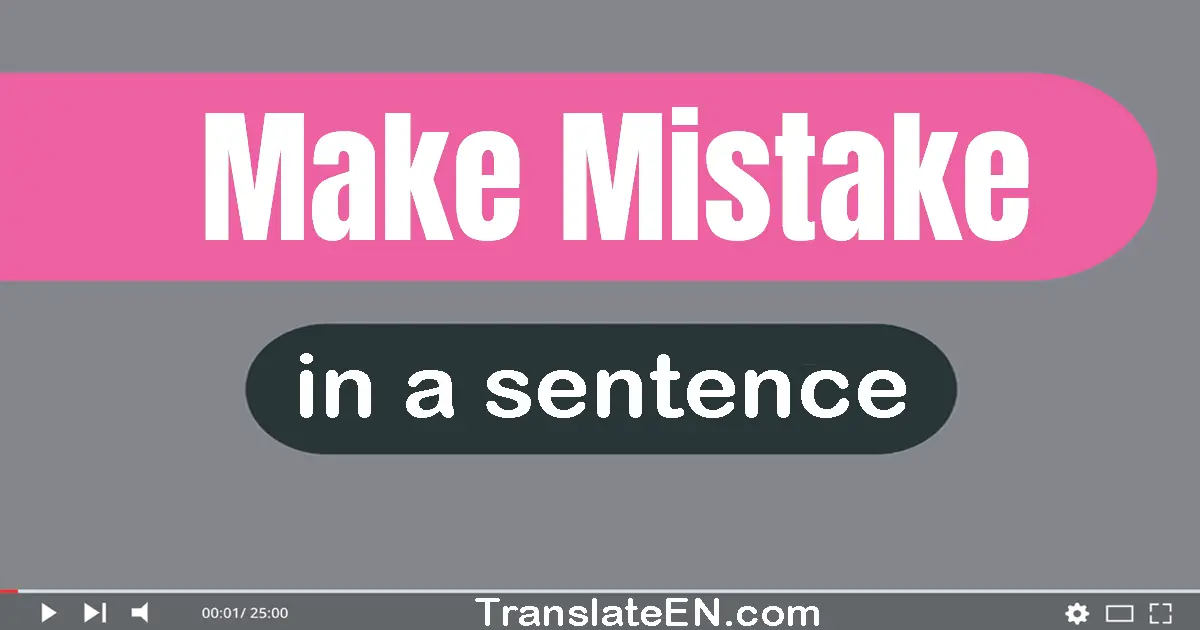englishhobby
Key Member
- Joined
- Jun 19, 2009
- Member Type
- English Teacher
- Native Language
- Russian
- Home Country
- Russian Federation
- Current Location
- Russian Federation
I came across a website that gives a few definitions of the phrasal verb "to make at":

 www.translateen.com
www.translateen.com
It seemed really odd to me that I couldn't find the phrasal verb "to make at" in any other dictionary (Cambridge, Longman, Collins, Webster etc). Is it outdated?

Use "Make At" In A Sentence
[213 sentence examples + Audio] How to make, use, write and learn "make at" in a sentence? The word "make at" in 213 sentence examples.
It seemed really odd to me that I couldn't find the phrasal verb "to make at" in any other dictionary (Cambridge, Longman, Collins, Webster etc). Is it outdated?


